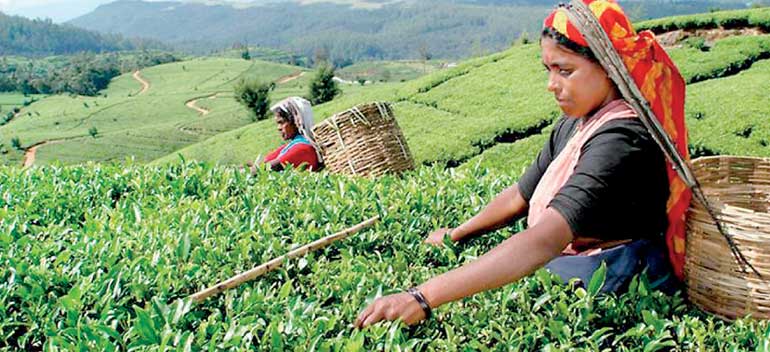Sunday Feb 22, 2026
Sunday Feb 22, 2026
Tuesday, 1 December 2015 00:05 - - {{hitsCtrl.values.hits}}
By Malinga Herman Gunaratne
Today there are certain marketing experts extolling brand promotion as opposed to promotion of Ceylon Tea. The argument that Ceylon Tea has no meaning to the new generation is of course not valid. To the world ‘tea’ means ‘Ceylon Tea’ and nothing else. That is why all the brand packers want to come to this country to mix up our teas with teas from other origins and bring the price down. That is also why teas blended with other origins carry the euphemistic term ‘Contains Ceylon Tea’.
Let me state at the very outset that this ill conceived idea, if implemented, will prove to be as irresponsible and damaging to the tea industry and the people of this country as the present Government’s election pledge to pay Rs. 80 per kilo of green leaf. This subsidy was not properly thought out and has resulted in an enormous drain on the country’s finances. Market interventions simply will not work, particularly on such a large scale. The attempt to buy tea at the auctions is similarly ill-conceived. We need to restrict production and all you have to do is advance the pruning cycle until prices improve.

Tea is synonymous with Ceylon. The first picture that appears in the mind of a tea drinker is Ceylon. The Ceylon brand has been tenaciously developed by that greatest marketer of all time, Sir Thomas Lipton. Indeed he even made the public believe that he owned the island and all the means of tea production! Lipton, owned by Unilevers, is a classic example of multinationals taking advantage of the Lipton brand which was a legacy bequeathed to them by Sir Thomas Lipton, who only sold Ceylon Tea and not the mixture of teas from different origins as is being done today.
The impression given to the world by infernal promotion is that the tea comes from Ceylon. That is the strategy of multinationals and we have no problem with that. However, these adventurers must not be permitted to damage the brand equity of Ceylon Tea.
The present Government’s proposal to launch a campaign to promote Ceylon Tea is long overdue. Unfortunately that campaign, chosen after a competitive bid and which should have been launched in 2012, was put on hold for some reason, rumoured to be political.
Why on earth should Sri Lanka help multinational brand promoters by kicking the ball into our own goal by promoting brands as opposed to the country of origin? Certainly we can promote brands and we must. We have already got some strong Ceylon brands like Dilmah and Akbar. Indeed very rewarding incentives should be given for brand promotion but the brands must contain ‘only’ Ceylon Tea. Bulk packers must, by disincentives, be made to realise that it does not pay to be suppliers and packers for other brands overseas.
Dilmah has received only Rs. 300,000 for the promotion of their brand in Australia and not the billions that are being talked about. So to say that Dilmah increased market share in Australia with funds from the Tea Board is an incorrect assertion. Dilmah spends billions on brand promotion in Australia, New Zealand and other parts of the tea drinking world. And Dilmah contains ‘only’ Ceylon Tea. Prime Minister Narendra Modi of India and President Hamid Karzai of Afghanistan drink only Dilmah Ceylon Tea. This was told to the previous President when he went for a world conference! He came back and told me that it was his proudest moment!
To promote brands and not the country is a very short sighted objective. We are perhaps the only country in the world that has so many different climatic zones typifying distinctly different teas. It is also the country that has the least insecticide and pesticide residues. So let’s tell the world the true Ceylon Tea story!
An allocation can be made for brand promotion but it must be within the umbrella of Ceylon Tea. The promoted brands must contain pure Ceylon Tea. On this there can be no compromise.
No tea of any kind should be ever allowed into Ceylon. The present so called special tea must be disallowed.
Why do leading brands use the words ‘packed in Ceylon’, ‘contains Ceylon tea’, if it is not to first confuse and then deceive the consumer. To say that blending in Ceylon will generate massive employment is simply not true. Blending is fully automated and needs only a few hands to handle large quantities.
Any attempt to import tea from other origins will be trespassing on the fundamental rights of the people of this country. The policymakers will have to take the responsibility of a market decline that will inevitably follow if this is allowed.
‘Those who care do not matter. Those who matter do not care’.